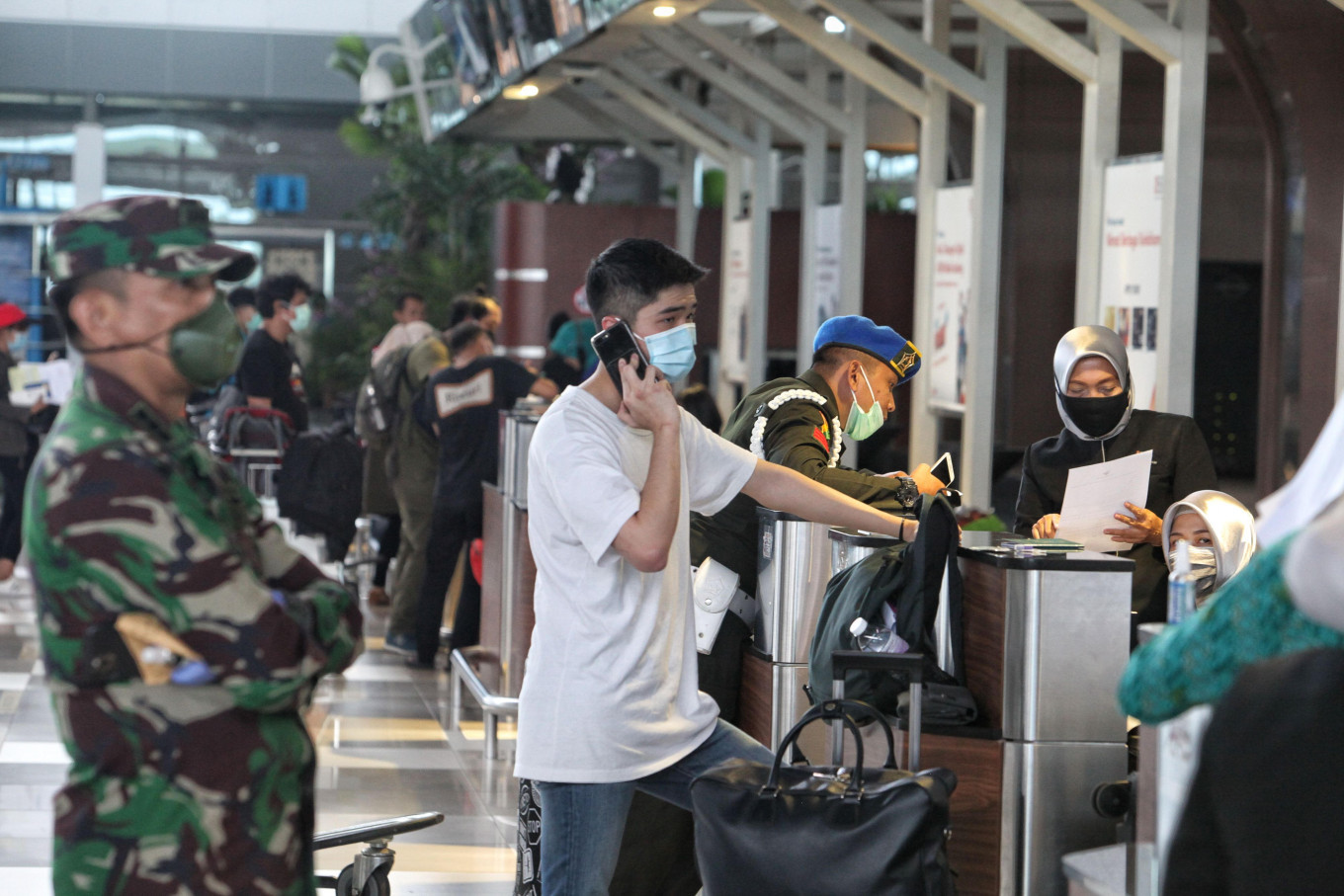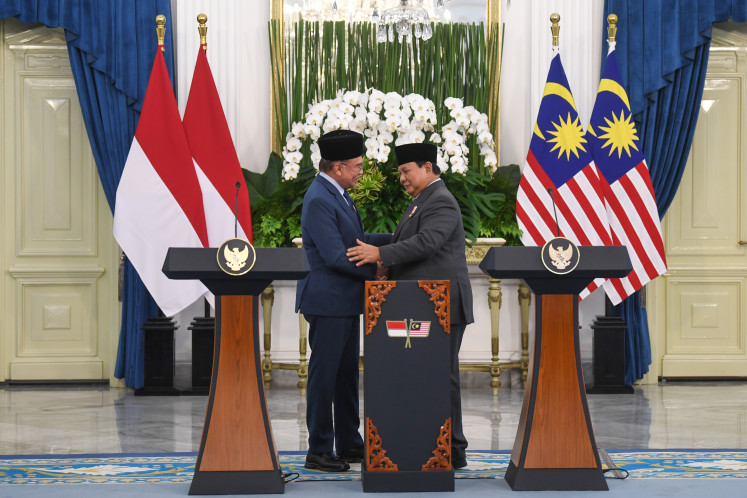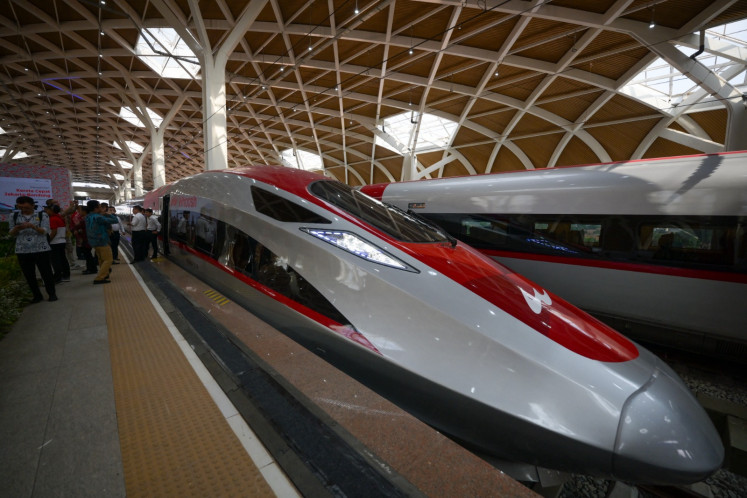Popular Reads
Top Results
Can't find what you're looking for?
View all search resultsPopular Reads
Top Results
Can't find what you're looking for?
View all search resultsAirport operator to increase flight slots, normalize operational hours
Change text size
Gift Premium Articles
to Anyone
 A passenger checks in at a counter at Soekarno Hatta International Airport in Tangerang, Banten, on May 7. (JP/Seto Wardhana)
A passenger checks in at a counter at Soekarno Hatta International Airport in Tangerang, Banten, on May 7. (JP/Seto Wardhana)
S
tate-owned airport operator PT Angkasa Pura (AP) II plans to increase the number of available flight slots and normalize its operational hours in July, as it seeks to spur the recovery of the aviation industry that has been severely impacted by the ongoing health crisis.
The airport operator has set a target to make 30 percent of flight slots available at its 19 airports across the country, from the previous 10 to 20 percent made available during the COVID-19 outbreak.
For example, at the country’s main airport, Soekarno-Hatta International Airport in Tangerang, Banten, it aims to make 330 of the airport's 1,100 daily flight slots available.
“Starting from July, we will focus on the recovery of aviation traffic to support economic activities in Indonesia,” said Awaluddin in an official statement on July 4.
The plan is part of the company’s strategy to ignite the recovery of the aviation industry, which also includes reopening domestic routes and increasing flight frequency.
The aviation industry has been battered by the COVID-19 outbreak, as people have been forced to cancel their travel plans amid restrictions on movement. The International Air Transport Association (IATA) has stated that 2020 will be the worst year in history for airlines, with global airlines expected to face a combined US$84.3 billion in losses, according to a report published on June 9.
AP II stated that its plan to increase the number of available flights slots would only be effective in giving a boost to the aviation industry if airlines also increased their flight frequency and reopened routes that were closed due to low demand.
Low cost carrier Citilink Indonesia aims to increase its flight frequency to 168 flights per day in July, from just 100 daily flights in June, its president director Juliandra Nurtjahjo said on July 4.
This figure will be increased to 200 daily flights by the fourth quarter, or around 68 percent of the Citilink’s normal traffic before the pandemic.
“We are optimizing aircraft utilization while prioritizing health aspects through disinfection processes and with the use of HEPA [high-efficiency particulate air] filters,” Juliandra said.
National flag carrier Garuda Indonesia, Citilink’s parent company, reported that despite a slight improvement in airline traffic in recent weeks following the easing of travel restrictions, its passenger numbers were still down 90 percent, while 70 percent of its aircraft remained grounded.
The airline booked a $120 million loss in the first quarter of the year, compared to the $20.48 million profit it reaped in the January to March period of 2019.
Meanwhile, AP II’s plan to normalize the airport’s operational hours was welcomed by state-owned air navigation firm AirNav Indonesia.
During the pandemic, many airports across Indonesia have seen a reduction in operational hours to adjust to plummeting passenger numbers.
The company will adjust its flight navigation service to the new, normalized operational hours of the airports, Airnav Indonesia president director M. Pramintohadi Sukarno said.









